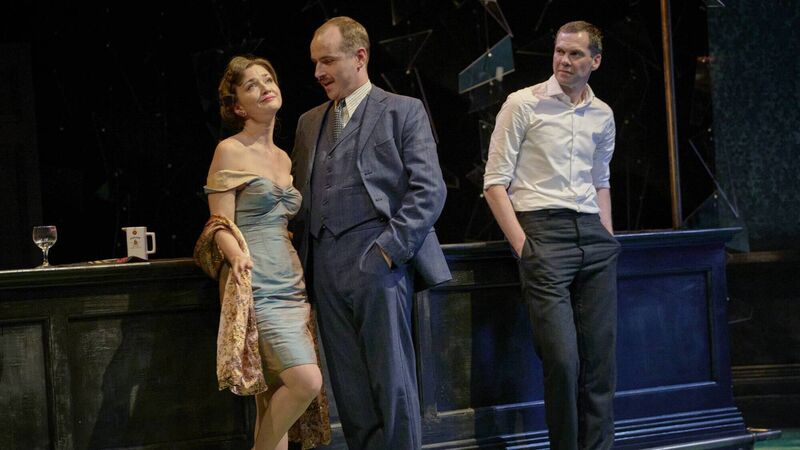Theatre review: Druid on form with new production of The House, by Tom Murphy

Amy Molloy, Darragh Feehely, and Marty Rea in Druid's production of The House, by Tom Murphy. Picture: Ros Kavanagh
★★★★☆
Though first staged in 2000, The House is something of a companion piece to A Whistle in the Dark, Tom Murphy’s violence-packed 1961 play of the criminal Carneys of Coventry. The House is the flipside: it’s the summer season, and the emigres are back in small-town Ireland. They’ve cash to spend, songs to sing, and fights to have. They’ll return to England and America in a couple of weeks, battered, bruised, and penniless. All to do it again next year.




